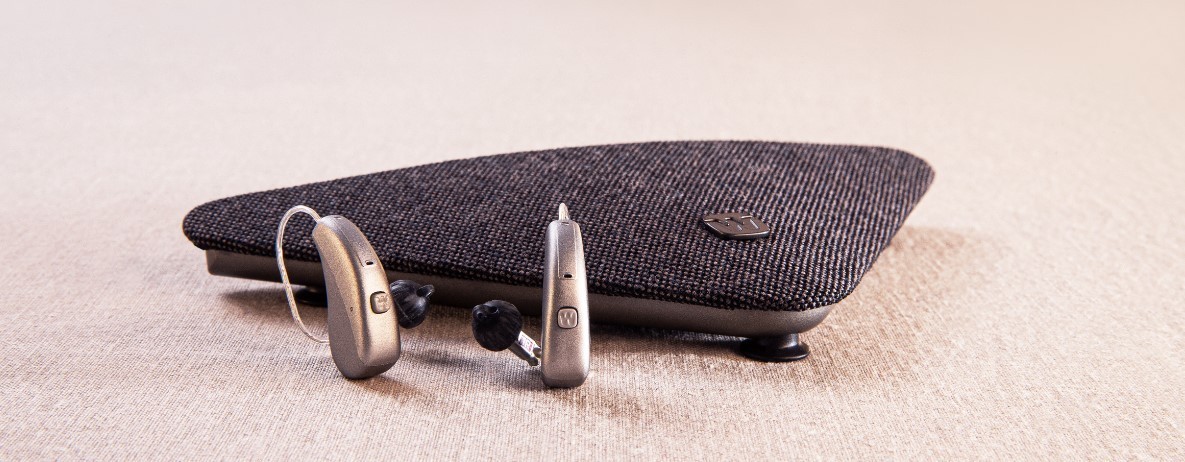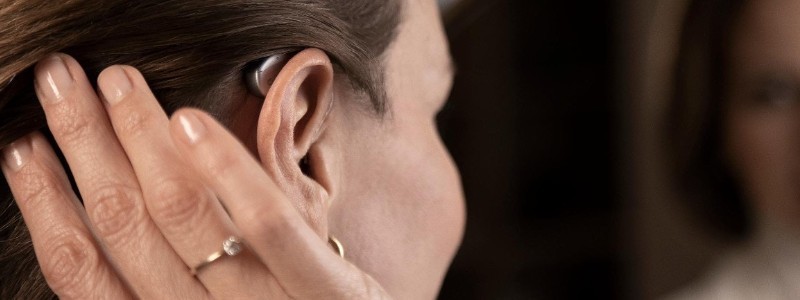The Latest Hearing Aid Technology 2024
Predicting new developments in hearing aid technology for 2024
What will 2024 bring?
It is difficult to predict exactly what hearing aid technology will look like in 2024, as the field is constantly evolving and new technologies are being developed. However, we will likely see a continued trend toward the integration of artificial intelligence (AI), collaborative ecosystems, and other advanced technologies in hearing aids.
When people predict hearing aid technology advancements or how any industry is going to move forward it is no easy feat. The rate at which digital hearing aid technology has advanced over the last few years has given rise to increased competition within the industry itself. Inspiring consumers to want, need, and expect more from these devices.
Although hearing aids still consist of four main parts - today's modern hearing aids give consumers far more than those of the past. They have switched to, in some cases, complete automation and features that support hearing loss needs in all environments. This article goes through the audiology progressions so far and what we could look forward to in 2024.

2024 Hearing Aid Technology
Artificial Intelligence (AI) integration and Augmented Reality (AR) applications will continue
Artificial intelligence and biometric sensors will continue to impress
Anticipate further integration of AI in hearing aids, enhancing their adaptability to various listening environments. AI algorithms can dynamically adjust settings, analyse and adapt to the wearer's surroundings in real-time, automatically adjusting the volume and frequency of sound to optimise the listening experience.
This can be particularly helpful in noisy environments, where traditional hearing aids may struggle to distinguish between important sounds and background noise. Even though artificial intelligence isn't anything new in hearing aids - it will continue to up its game for 2024 and beyond.
For instance, towards the back end of 2023, we saw the 2nd generation of Phonak's health and fitness tracking features, especially the heart rate sensors, in the Audeo Lumity Fit model. This allows hearing aids to collect data on the wearer's physical activity, sleep, and other health metrics, which could be used to optimise the performance of the hearing aid.
We might find an increase in AR technology in hearing aids, providing wearers with augmented information about their surroundings. This could include visual indicators of sound sources, language translation, or real-time captions, enhancing communication in diverse situations. We saw this first in Signia's Augmented Xperience range and this technology has shown even further developments in the IX.
Machine learning and powerful processing chips will continue progression
Continued progress in machine learning algorithms and more personalisation will enable hearing aids to learn from the wearer's preferences and behaviours. This technology could adapt to individual listening habits, automatically adjusting settings and improving overall user satisfaction.
More high-performance chips will no doubt continue to be the norm, which will make quicker and more efficient tailor-made amplification and connectivity. Resulting in a higher level of personalisation for wearers.
Hearing aid-assisted technology, features, remote care & apps will continue to rise
Hearing aid apps are software applications that can be used to control and customise the settings of a hearing aid, as well as to monitor and track the wearer's hearing health. 2024 may bring even more advanced and sophisticated hearing aid apps that offer a wider range of features and capabilities.
Such as more hearing aids with the ability to customise the volume and frequency settings of the hearing aid in real-time, or to switch between different listening profiles depending on the environment. There will no doubt be more evolved hearing aid apps offering features such as speech recognition or language translation, which could be particularly useful for people with hearing loss who need additional communication support.
In terms of design, we will likely see a continued trend towards user-friendly, intuitive hearing aid apps that are easy to navigate. More hearing aid apps may offer features such as voice control, which could make it easier for wearers to control their hearing aids without the need for buttons or physical elements to manage.

What's new in hearing aid technology for 2024?
Bluetooth will continue to be a spotlight
Bluetooth hearing aid technology will continue to revolutionise
The legacy of Bluetooth hearing aid technology has been evolving for years and has revolutionised the way people with hearing loss experience everyday life. In 2024, expect advancements in wireless connectivity, enabling seamless integration with a broader range of devices.
Enhanced compatibility with smartphones, smart TVs, and other IoT devices will allow users to have a more connected and interactive experience with their hearing aids. We also predict there will be more In-Ear products offering low-consumption Bluetooth and integrated rechargeable technology. Therefore, in terms of design, it is likely that we will see a continued trend toward smaller, more discreet hearing aids.























